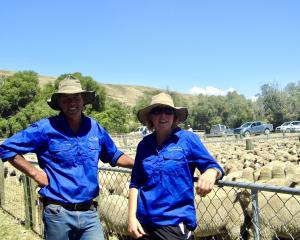It is a tale of two halves in the deer industry as venison schedule prices drop to their lowest level in more than a decade while consumer demand for velvet remains robust.
ANZ’s latest Agri Focus report said venison markets were "extremely challenging"; venison was highly exposed to the European restaurant trade and the industry was scrambling to move more products into the retail space to reduce reliance on the food service sector.
Farmgate prices for deer might have "ticked up a tad" recently but prices had not been at such low levels for more than a decade.
"It is a real blow for an industry that was doing so well and had appeared to have moved away from the volatile cycles of boom and bust that have long plagued the industry," the report said.
High farmgate returns in recent years were driven by selling higher-valued chilled venison and that product was heavily reliant on the restaurant trade in key European countries such as Germany and Belgium.
But buyers were reluctant to commit to forward orders this year as they feared a second wave of Covid-19 could shut down those outlets, leaving them carrying product.
Getting chilled venison to Europe was also challenging. Shipping delays were occurring and there was virtually no options for air freight. The logistics of getting product to Asia were much better, primarily due to the large quantities of dairy products and other meats heading to Asia.
Very small quantities of venison were sold in China but that market had plenty of potential.
Farmgate prices typically lifted during the spring as product was procured in time to meet the European Christmas trade, a time when venison was traditionally on the menu. However this year, with the high level of market uncertainty, there was no guarantee that there would be a significant lift in schedule prices.
Meanwhile, velvet was doing "considerably better" than venison. It was used primarily as a health supplement or in health remedies, with South Korea the major end market. Some product was also further processed in China.
In-market stocks were reported to be relatively low as demand for velvet remained strong throughout the Covid-19 outbreaks in South Korea and China.
Some users believed velvet had immune-boosting properties so it was not surprising demand for the product had remained robust, the report said.













